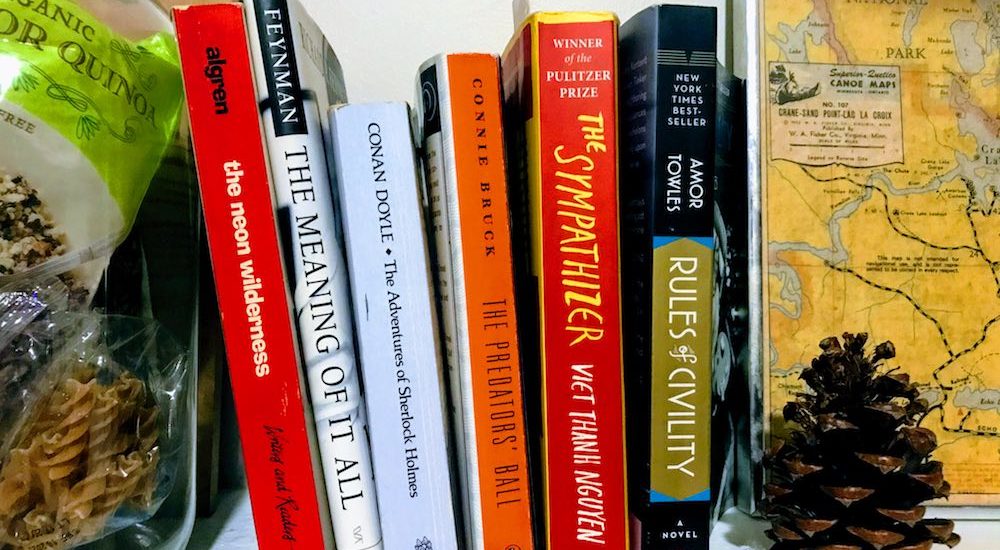I often wonder how much I retain when I read. I’ll think about a book a lot while I’m reading it, and for the next month or so afterwords, but then largely forget about it. There are a few books I think about a lot, even years afterward (The Black Swan, The Power of Habit and The Hard Thing About Hard Things come to mind), but mostly I only vaguely remember most of the books I read.
As a little test of this, I tried to think of books I’ve read recently and thought of the big things I retained from them. I intentionally didn’t think too hard about these, because I wanted to see what things from each book stuck in the front of my mind.
It has also made me realize how embarrassingly homogenous the authors of the nonfiction books I read are. Please recommend me your favorite nonfiction books written by women.
Listen to one on Audible if it’s your first time trying it; it’s a great way to consume books and to support this blog.
Why We Sleep by Matthew Walker
Sleep is essential to almost every aspect of health and most people drastically under-prioritize it.
Powerful by Patty McCord
Netflix has been successful by doing away with organizational regulation (e.g. vacation policies, expense reports) and putting trust into their employees.
The Hard Thing About Hard Things by Ben Horowitz
You don’t have to sugarcoat the challenges to your company as a leader. Being a CEO is really lonely and challenging and you must take care of your own psychology. If you’re going to fire someone, do it quickly.
Cooked by Michael Pollan
Cooking is a really good way to improve your physical and mental health. Fermented foods (kombucha, kimchi etc.) are probably good for you and you should eat more of them.
The Black Swan by Nassim Taleb
You should aim to expose yourself to situations with high potential upside (for example, going to a dinner party where you might meet someone who could change your life).
When the Wolves Bite by Scott Wapner
Ego can be really costly as it can make it harder to change your mind. Also, individual investors can play a larger role in market movements than I realized.
Bad Blood by John Carreyrou
The culture of “promise now, build it later” in Silicon Valley is pervasive and can be really devastating. Trust yourself when you see unethical things being done at a company you work at. Get things in writing and protect yourself legally.
Ali Baba: The House that Jack Ma Built by Duncan Clark
Jack Ma is a brilliant teacher and storyteller. You don’t have to be a technical genius to start a massively transformational technology company.
The Innovators by Walter Isaacson
Lots of people contributed bits and pieces to the founding of the internet. Places like Bell Labs where lots of smart people from different backgrounds can interact prompt a lot of innovation.
Surely You’re Joking, Mr. Feynman by Richard Feynman
It’s beneficial to intentionally broaden the experiences you have. It is far better to understand something from the ground up (“first principles”) than to know facts without understanding.
The Accidental Superpower by Peter Zeihan
Aging populations are a more important macroeconomic factor than a lot of people think, and the effect of developed economies’ populations aging will be felt in the next 15 years. Also, shale and fracking have made the U.S. much less dependent on the rest of the world.
Why Buddhism is True by Robert Wright
Meditation is a skill that must be practiced but it can be hugely beneficial. It can change the way your brain works.
The Power of Habit by Charles Duhigg
Habits are pervasive in our lives and you should be intentional about cultivating them. Keystone habits like exercise are the best place to start because they encourage other good habits.
Red Notice by Bill Browder
Markets are not efficient in areas where investors haven’t had much experience (in this case, post-Soviet Union privatization) and there is a lot of opportunity in these areas. Also, the Russian government is terrifying.
Algorithms to Live By by Brian Christian
If you want to optimally decide on something e.g. picking out an apartment, figure out how much time you want to spend looking in total. Then, allocate the first 37% of your time to “calibration”–looking with no intention to buy. After this period, buy the first one that exceeds the best you’ve seen so far.
Shopclass as Soul Craft by Matthew Crawford
“Blue Collar” work can be as intellectually stimulating as “White Collar” work and can be much more fulfilling.
I have read several of these books as a result of the recommendations I compiled in this article about VC’s most recommended books. I haven’t been disappointed in them.
Thanks for reading! Reach out on twitter with any book recommendations or questions.
